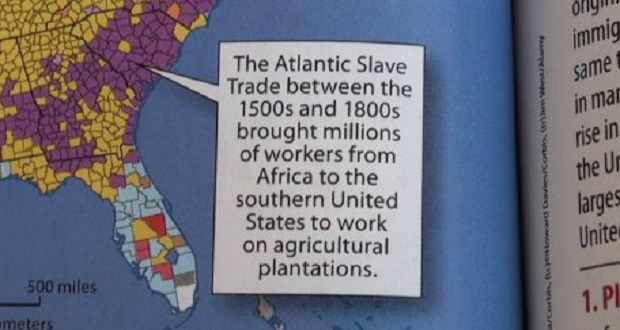
If you’ve ever wondered whether today’s youth are paying enough attention in school, just ask 15-year-old Coby Burren. The high-school freshman recently noticed on page 126 of his McGraw-Hill geography textbook the following caption related to immigration: “The Atlantic Slave Trade between the 1500s and 1800s brought millions of workers from Africa to the southern United States to work on agricultural plantations.”
That prompted him to text his mother, Roni Dean-Burren, “We was real hard workers wasn’t we.” Dean-Burren, a former English teacher, knows a thing or two about the power of language, explaining to The Washington Post: “This is erasure. This is revisionist history—retelling the story however the winners would like it told.”
McGraw-Hill was equating the slave trade with immigration? Calling slaves “workers”?
Like Dean-Burren, I would not describe chaining people, forcing them onto ships, and transporting them across an ocean as “immigration.” And while they did work picking cotton, that hardly makes them “workers.”
After Dean-Burren’s Facebook posts lambasting McGraw-Hill this went viral, the book publisher issued a statement that “language in that caption did not adequately convey that Africans were both forced into migration and to labor against their will as slaves. We believe we can do better. To communicate these facts more clearly, we will update this caption to describe the arrival of African slaves in the U.S. as a forced migration and emphasize that their work was done as slave labor.”
McGraw-Hill plans to make changes in the digital version of the textbook, as well as in its next printing. However, given that few students use the e-version and the publisher probably won’t issue a new hard copy for perhaps another decade, Dean-Burren wants McGraw-Hill to recall the current textbook or at least send out a supplement.
“Minimizing slavery in any way is a way of saying those black lives, those black bodies, that black pain didn’t matter enough to give it a full description,” said Dean-Burren.
All of which drives home the notion that words matter. A high-school freshman understands that. Why didn’t a major book publisher?


















